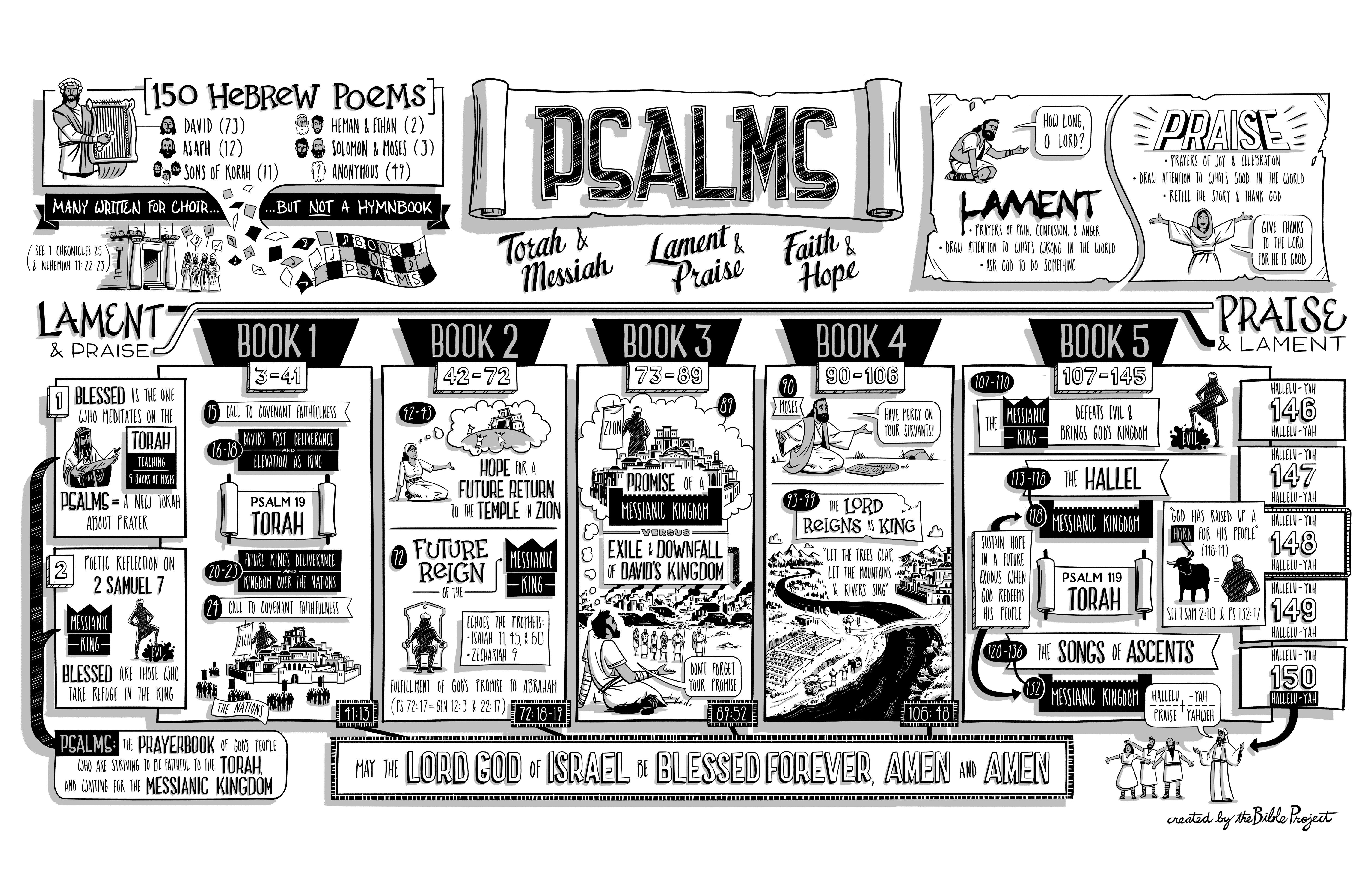The Book of Psalms, a cherished collection of 150 ancient Hebrew poems, songs, and prayers, offers profound insights into the spiritual landscape of ancient Israel. Originating from various periods of Israelite history, these psalms resonate with timeless human emotions and experiences. This guide delves into the authorship, context, key themes, and structure of the Psalms, providing a comprehensive understanding of this significant book of the Bible.
Authorship of the Psalms
While tradition ascribes 73 psalms to King David, a renowned poet and musician (1 Sam. 16; 2 Sam. 23), the authorship of the Psalms is diverse. Asaph is credited with 12 psalms, the sons of Korah with 11, and Heman and Ethan each contributed one (1 Chronicles 15:17-19). King Solomon is associated with two psalms, and Moses with one. Notably, nearly one-third (49) of the psalms are anonymous, reflecting a collective contribution to this rich anthology.
Historical Context
The events depicted in the Psalms span several centuries of Israelite history. While many were likely used by temple choirs (1 Chronicles 25; Neh. 11:22-23), the book of Psalms as we know it today was compiled and arranged after Israel’s exile to Babylon. This intentional arrangement reveals a unique design and message that unfolds when read from beginning to end. The Psalms were not merely a collection of songs, but a carefully curated work of literature.
Exploring Key Themes
The Psalms explore several recurring themes that offer profound insights into Israelite faith and spirituality:
- God as King of all creation: Many psalms celebrate God’s sovereignty over the universe, emphasizing his power, wisdom, and justice.
- Hope for the Messiah after exile: The Psalms express a longing for a future messianic king who will deliver Israel from oppression and establish God’s kingdom on earth.
- Lament as a response to evil: The Psalms provide a voice for those suffering from injustice and hardship, acknowledging the reality of evil in the world and calling on God for help.
Unveiling the Structure of the Psalms
The book of Psalms is divided into five distinct books, each with its own unique emphasis and perspective:
- Book 1 (Psalms 3-41): Focuses on covenant faithfulness, with King David presented as a model of devotion and trust in God.
-
Book 2 (Psalms 42-72): Emphasizes hope for the messianic kingdom, envisioning a future ruler who will bring justice and peace to all nations.
-
Book 3 (Psalms 73-89): Reflects on the tragedy of Israel’s exile and the apparent contradiction between God’s promises to David and the nation’s suffering.
-
Book 4 (Psalms 90-106): Affirms God’s kingship over all creation, highlighting his power and majesty in the face of adversity.
-
Book 5 (Psalms 107-150): Celebrates God’s faithfulness to his people and looks forward to the ultimate fulfillment of his promises in the messianic kingdom. This section contains the “Songs of Ascent” (Ps. 120-136), and concludes with five psalms of praise (Ps. 146-150), each beginning and ending with “Hallelujah” – “Praise Yahweh.”
Understanding the Overall Design
The structure of the Psalms reveals a deliberate design that enhances its message. The five-book division is marked by concluding doxologies (Ps. 41:13; Ps. 72:19; Ps. 89:52, and 106:48), signaling the end of each section. Furthermore, Psalms 1 and 2 serve as an introduction, establishing key themes of Torah obedience and messianic hope.
The Interplay of Lament and Praise
The Psalms encompass a wide range of human emotions, expressed through poems of lament and praise. Lament psalms give voice to pain, confusion, and anger in the face of suffering, while praise psalms celebrate God’s goodness and faithfulness. The balance between these two types of poems reflects the complexity of the human experience and the importance of both lamenting and praising God.
The Psalms invite readers to engage with God in all circumstances, expressing their deepest emotions and trusting in his promises. The book teaches us to not ignore our pain, nor let it determine the meaning of our lives. Biblical faith and prayer is always forward-looking, anticipating the day when God will fulfill his promises and praising him for this ahead of time. The interplay of lament and praise is a reminder that faith is not a denial of reality, but a confident hope in God’s ultimate victory.
Conclusion
The Book of Psalms is a treasure trove of spiritual wisdom and poetic beauty. By understanding its authorship, context, themes, and structure, readers can gain a deeper appreciation for its enduring message of faith, hope, and love. Whether expressing lament or praise, the Psalms offer a powerful voice for all who seek to connect with God and find meaning in their lives.
